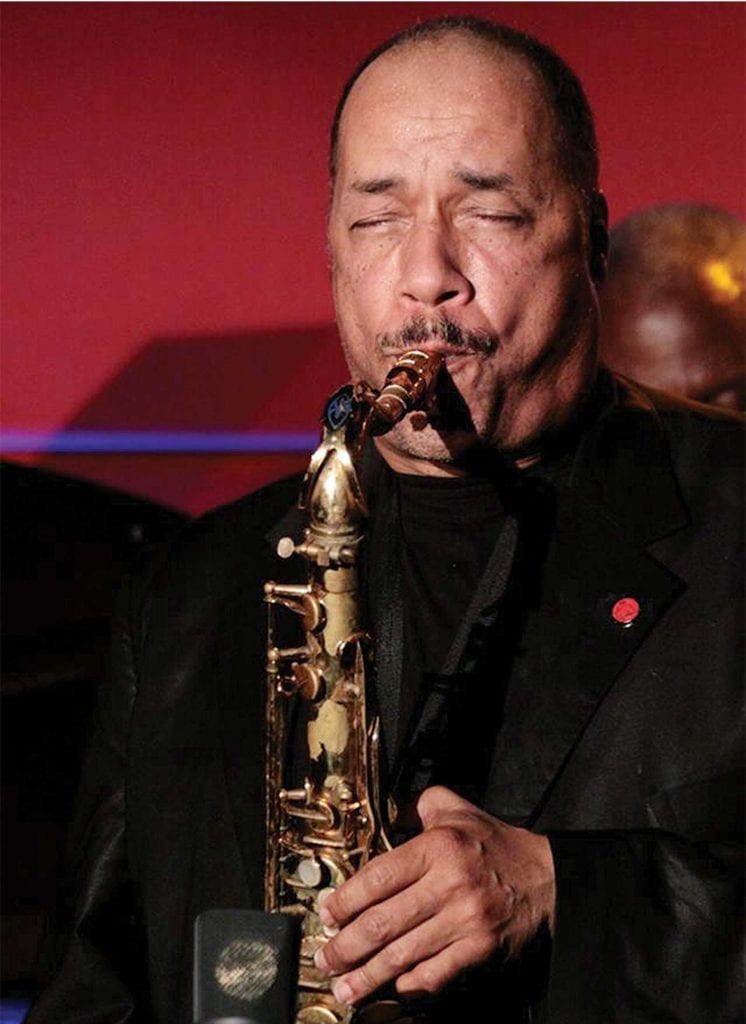Jazz & poetry come to Nubian Square
Organized by the Makanda Project, the free event is the first of a series

Saxophonist Ricky Ford, poet Askia Touré, and pianist and arranger John Kordalewski are bringing original jazz and the poetry of Langston Hughes to the Bruce C. Bolling Municipal Building for one night only on Saturday, March 14, from 7 to 9 p.m.
The evening will feature nine compositions written by Ford, based on the poetry of Hughes, and performed as a world premiere. Ford is the force behind the evening.
Organized by the Makanda Project, the free event is the first of a series. Throughout 2020, the series will feature performances at the Bolling Building as well as other sites around town, including the First Church in Roxbury, at 10 Putnam St., the Commonwealth Housing Development, at 35 Fidelis Way in Brighton, and Bunker Hill Community College.
Named after Makanda Ken McIntyre, who was a jazz musician and composer originally from Boston’s South End, the Project features an ensemble that typically performs compositions written by McIntyre, who died in 2001, but not performed while he was alive.
The Makanda Project, made up of thirteen musicians — “five saxophones, two trumpets, three trombones, and piano, bass and drums” — was established in 2005 with arrangements of McIntyre’s music made by Kordalewski.
“We are part of the community,” Kordalewski says. “And this time, we’re really excited about working with Askia and Ricky.”
Ricky is the great jazz saxophonist Ricky Ford, originally from Boston and now based in Paris. Ford, who has recorded with the likes of Mal Waldron, Ran Blake, Charles Mingus and Abdullah Ibrahim, among others, will lend both tradition and innovation to the evening.
Adding to the mix is Askia Touré, the inimitable and renowned poet who made his name through his art and social activism. A progenitor of the Black Arts Movement of the 1960s and schooled in the poetry of legendary Harlem poet Langston Hughes, Touré has made Boston his home since the 1990s.
“I’m going to weave the poetry together with the music,” he tells the Banner. “You know, the Beat poets and hippies are associated with that approach, but it really started in Harlem with Mr. Hughes and other writers.”
Touré views poetry as a substantive part of social activism, and a form that in subtle ways joins forces with other art forms that have comparable meaning, such as jazz.
“The poetry and music strengthen ties and roots in the community,” Touré says. “It’s a way to reach young people as well. For example, Mr. Hughes was a living role model when I was a young writer, and was a people’s poet, and these people’s poets can be seen as early version of those today who are called rappers.”
Touré describes having met Afeni Shakur and her son Tupac Shakur, and the relationship they both had to political activism and poetry.
“Tupac was very charismatic and warm,” Touré says. “He would listen. And just as we felt that Mr. Hughes was an uncle to those of us coming up in the Black Arts movement, we felt like an uncle to him.”
The March 14 event is free and open to all.






